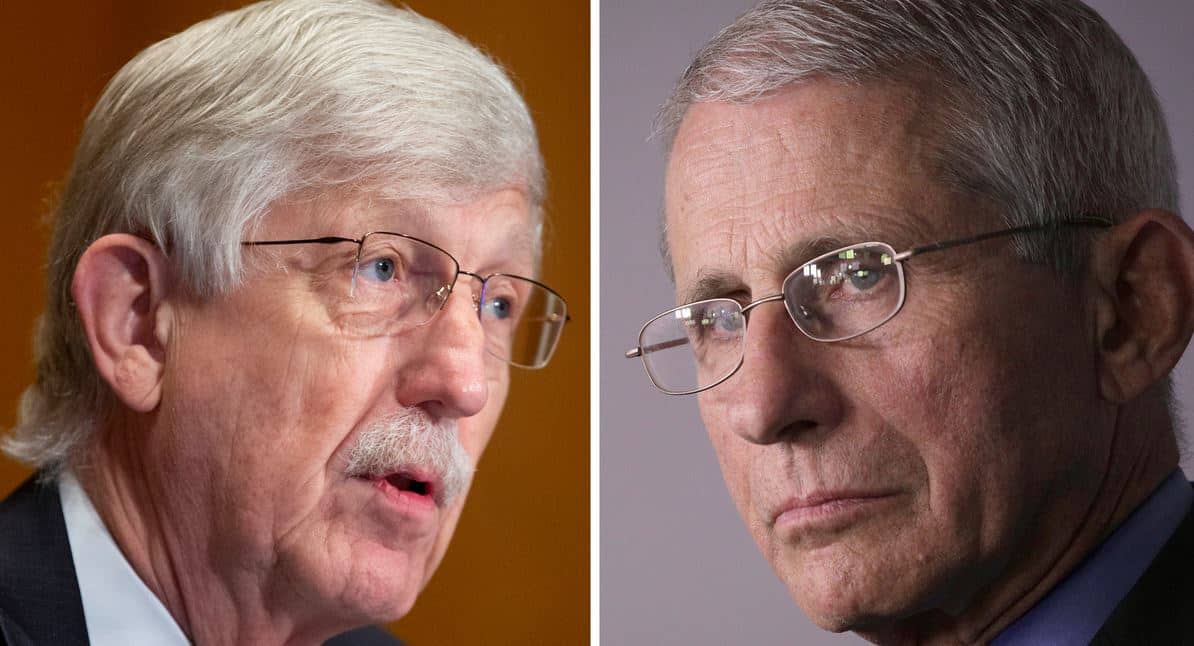One warm weekend in October of 2020, three impeccably credentialed epidemiologists—Jayanta Bhattacharya, Sunetra Gupta, and Martin Kulldorff, of Stanford, Oxford, and Harvard Universities respectively—gathered with a few journalists, writers, and economists at an estate in the Berkshires where the American Institute for Economic Research had brought together critics of lockdowns and other COVID-related government restrictions. On Sunday morning shortly before the guests departed, the scientists encapsulated their views—that lockdowns do more harm than good, and that resources should be devoted to protecting the vulnerable rather than shutting society down—in a joint communique dubbed the “Great Barrington Declaration,” after the town in which it was written.
The declaration began circulating on social media and rapidly garnered signatures, including from other highly credentialed scientists. Most mainstream news outlets and the scientists they chose to quote denounced the declaration in no uncertain terms. When contacted by reporters, Drs. Anthony Fauci and Francis Collins of the NIH publicly and vociferously repudiated the “dangerous” declaration, smearing the scientists—all generally considered to be at the top of their fields—as “fringe epidemiologists.” Over the next several months, the three scientists faced a barrage of condemnation: They were called eugenicists and anti-vaxxers; it was falsely asserted that they were “Koch-funded” and that they had written the declaration for financial gain. Attacks on the Great Barrington signatories proliferated throughout social media and in the pages of The New York Times and Guardian.
Yet emails obtained pursuant to a FOIA request later revealed that these attacks were not the products of an independent objective news-gathering process of the type that publications like the Times and the Guardian still like to advertise. Rather, they were the fruits of an aggressive attempt to shape the news by the same government officials whose policies the epidemiologists had criticized. Emails between Fauci and Collins revealed that the two officials had worked together and with media outlets as various as Wired and The Nation to orchestrate a “takedown” of the declaration.
Nor did the targeting of the scientists stop with the bureaucrats they had implicitly criticized. Bhattacharya, Gupta, and Kulldorff soon learned that their declaration was being heavily censored on social media to prevent their scientific opinions from reaching the public. Kulldorff—then the most active of the three online—soon began to experience censorship of his own social media posts. For example, Twitter censored one of Kulldorff’s tweets asserting that: “Thinking that everyone must be vaccinated is as scientifically flawed as thinking that nobody should. COVID vaccines are important for older, higher-risk people and their caretakers. Those with prior natural infection do not need it. Not children.” Posts on Kulldorff’s Twitter and LinkedIn criticizing mask and vaccine mandates were labeled misleading or removed entirely. In March of 2021, YouTube took down a video depicting a roundtable discussion that Bhattacharya, Gupta, Kulldorff, and Dr. Scott Atlas had with Gov. Ron DeSantis of Florida, in which the participants critiqued mask and vaccine mandates.
Because of this censorship, Bhattacharya and Kulldorff are now plaintiffs in Missouri v. Biden, a case brought by the attorneys general of Missouri and Louisiana, as well as the New Civil Liberties Alliance (NCLA), which is representing them and two other individuals, Dr. Aaron Kheriaty and Jill Hines. The plaintiffs allege that the Biden administration and a number of federal agencies coerced social media platforms into censoring them and others for criticizing the government’s COVID policies. In doing so, the Biden administration and relevant agencies had turned any ostensible private action by the social media companies into state action, in violation of the First Amendment. As the Supreme Court has long recognized and Justice Thomas explained in a concurring opinion just last year, “[t]he government cannot accomplish through threats of adverse government action what the Constitution prohibits it from doing directly.”
Federal district courts have recently dismissed similar cases on the grounds that the plaintiffs could not prove state action. According to those judges, public admissions by then-White House press secretary Jennifer Psaki that the Biden administration was ordering social media companies to censor certain posts, as well as statements from Psaki, President Biden, Surgeon General Vivek Murthy, and DHS Secretary Alejandro Mayorkas threatening them with regulatory or other legal action if they declined to do so, still did not suffice to establish that the plaintiffs were censored on social media due to government action. Put another way, the judges declined to take the government at its word. But the Missouri judge reached a different conclusion, determining there was enough evidence in the record to infer that the government was involved in social media censorship, granting the plaintiffs’ request for discovery at the preliminary injunction stage.
Read the whole article here.


